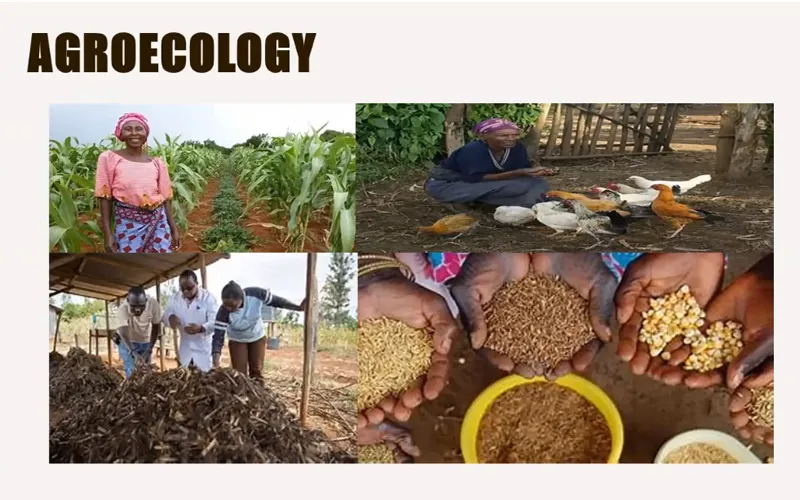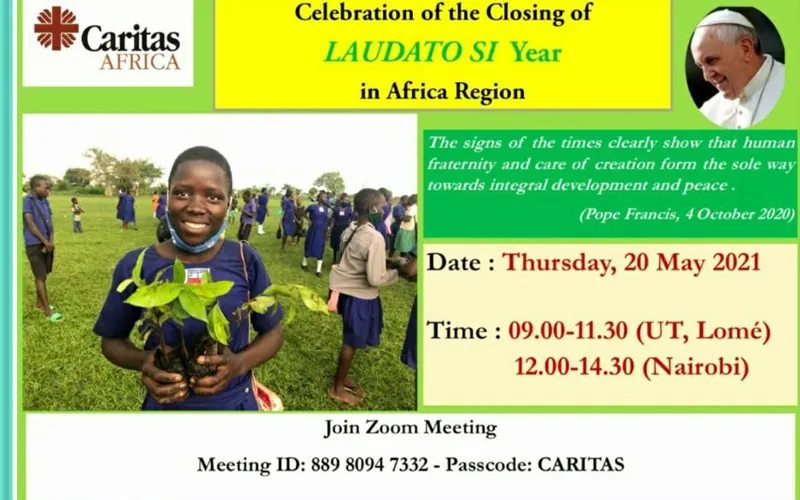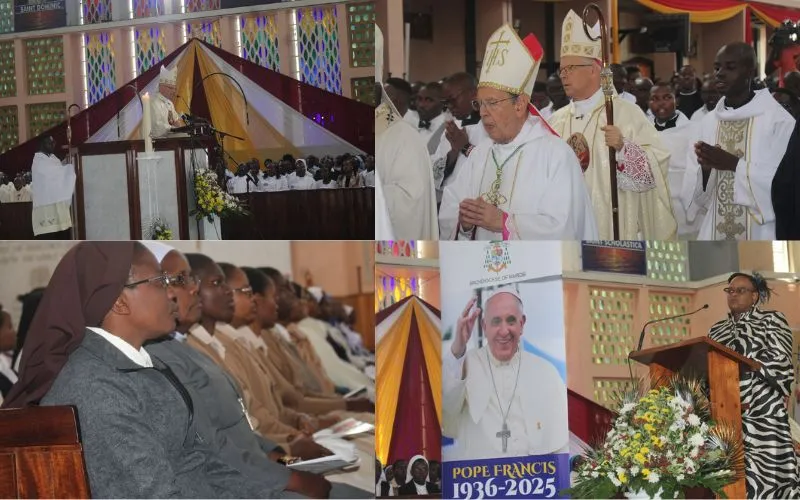“The environmental issues and the sanitation challenges in Freetown have been growing and that is why in 2017 we had a mudslide that took the lives of over 1,000 people,” Mr. Bangura recalled.
Access to drinking water is a challenge in the West African nation, the Caritas Sierra Leone official said, and explained, “There is a serious scramble for access to clean drinking water in Freetown and even in the rural villages and children are unable to go to school because of this challenge.”
He further said that the Church-based organization has resolved to try and improve the sanitation and other environmental issues that are contributing to flooding and to other disasters in the country.
“At the moment, we just rolled out a project together with Freetown city council in cleaning all the drainages in the capital city Freetown as an act of proactive measure towards the approaching rainy season,” Mr. Bangura said.
Caritas officials from other African countries also shared their Laudato Si’ experiences and presented interventions they were coordinating in their respective countries.
(Story continues below)
Chimwemwe Sakunda, a representative from Caritas Malawi, said that the organization’s major concern is the popularization of Laudato Si in the country’s eight Catholic Dioceses.
Ms. Sakunda said that awareness had been created through the radio stations especially the Catholic ones where public statements had been made concerning the conservation of the environment. Some messages have also been disseminated through social media.
Caritas Malawi had also coordinated the planting of over 2,500 trees at St. Paul Seminary in the country’s Catholic Diocese Mangochi.
Caritas Malawi does not, however, enjoy enough government support, Ms. Sakunda lamented.
“There is a huge knowledge gap on the role of the Church in environmental conservation,” she said, and added, “There isn’t much appreciation. There is no validation and allocation of resources from the government is almost non-existent.”
Samuel Zan Akologo who represented Caritas Ghana lauded the Ghana Catholic Bishops Conference (GCBC) for approving and supporting development of the comprehensive “Care for our Common Home Program” which encompasses environmental interventions such as tree planting, electronic and plastic waste management and solar energy.
This program, Mr. Akologo said, is not only helping to preserve the environment but it is also creating employment among the youth.
A plastic recycling plant born from the program, for instance, is employing over 40 young people who lost their jobs during the COVID-19 lockdown in the country last year.
“As at the end of April, we had taken out 12,000 kilograms of plastic from the streets and gutters of the city,” the Caritas Ghana official said.
“For the Ghana Catholic Bishops Conference, the spirit and injection of Laudato Si is not merely to be celebrated but must manifest in long-term concrete action plans that promote integral human development,” Mr. Akologo said, adding that the aim of the Bishop's charity arm is to plant one million trees by the end of the year 2021.
On his part, Eugene Kabilika from Caritas Zambia said that officials of the organizations are training the locals on environmentally friendly technologies such as the use of energy-saving stoves to reduce deforestation in the country.

Caritas Zambia has also been convincing people that agro-ecology works in terms of promoting farming activities that conserve the richness of the soil, including the use of organic manure in the place of fertilizers and chemicals.
Farmers have also been urged to go back to using indigenous seeds that are more resistant to pests and diseases to limit the need to use inorganic pesticides.
Since last year, Caritas Africa has been involved in a number of projects to raise awareness on the Laudato Si’ and its message of the care of the environment.
Highlighting some of the wins of Caritas Africa so far, Ms. Esipila said, “We rolled out our advocacy program and it embraces an integral human development approach. In the month of July last, we hosted a side event in the United Nations High Level political forum where presentations were made through the lens of Laudato Si’.”
The Caritas Africa official also mentioned a meeting the organization held last year with the United Nations Environmental Program (UNEP) where Caritas Africa explored the possibility of being accredited by the UN agency.
Additionally, last year, the Regional Catholic organization worked on a survey on the humanitarian and Community Managed Disaster Risk Reduction(CMDRR) context of Sub-Saharan Africa.
Reporting about the survey, Ms. Esipila said, “We are using this information to develop a manual on Community Managed Disaster Rate Reduction and we are tying it to advocacy and governance.”
She told participants at the virtual event that Caritas Africa has also been granted the observer status at the governing body of the UNEP.
“This is a very important step because it recognizes the role that civil society plays in providing expertise and scientific knowledge and informing governments of the local needs and opinions as well as identifying on the ground the realities of policy decisions,” the Caritas Africa official said.
Agnes Aineah is a Kenyan journalist with a background in digital and newspaper reporting. She holds a Master of Arts in Digital Journalism from the Aga Khan University, Graduate School of Media and Communications and a Bachelor's Degree in Linguistics, Media and Communications from Kenya's Moi University. Agnes currently serves as a journalist for ACI Africa.









